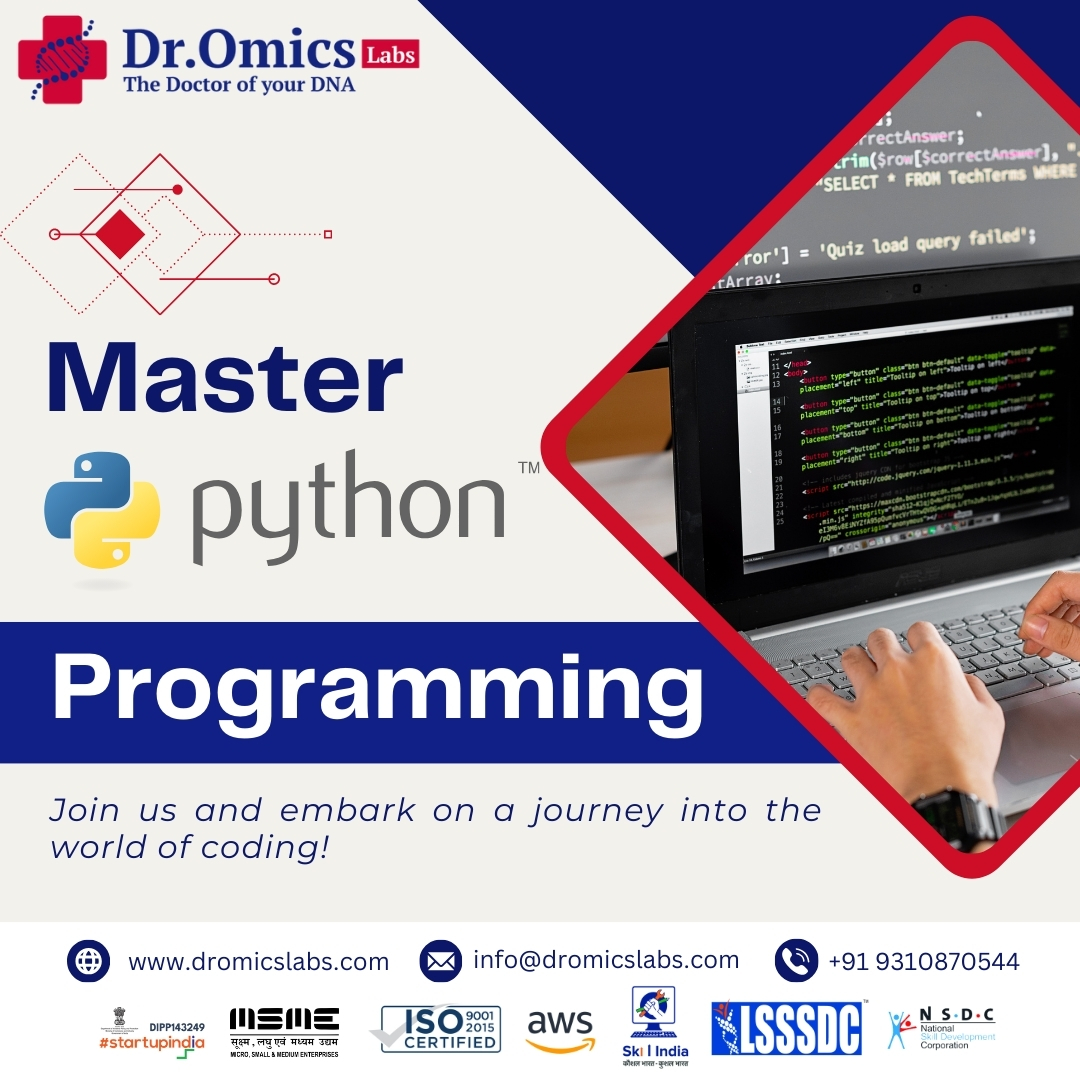Mastering Python : Beyond the Basics with Pipeline Engineering

About Course
Python Module I: Basics to Advanced
- Introduction to Python language
- Role of Programming in Bioinformatics
- Installation of Python on various platforms
- Installation of IDE-Print function, Comments, User input
- Command line arguments and Data types
- Variables and rules to create a variable
- In-built functions of Python slicing and indexing in String
- String and data formatting
- Control statements (if-else,If-elif-else,for loop, etc)
- Python data structure (List, Set, Tuple, etc.)
- Methods of data structures
- Function introduction & its requirement
- Exception Handling, File Handling & Pandas Library
Python Module II: Packages of Biopython
- Introduction to Biopython
- Installation of Biopython
- Conversion of a string into a biological sequence
- Obtaining complement, reverse complement, transcribe, reverse transcribe, and translation from a sequence
- Finding GC content from a sequence
- SeqIO object: Reading various biological file formats such as Fasta & GenBank
- Analysis of fasta sequences
- Finding GC content of a fasta file containing multiple sequences & storing the data in a file
- Converting a GenBank file into Fasta format
Python Module III (APPLICATION:- NGS pipeline engineering using Biopython)
- Introduction to RNA Seq
- Necessary Tools installation
- Learn how Data Retrieval is done
- Quality Check of reads
- Trimming and cleaning of data
- Understanding mapping of reads on the reference genome and file formats (SAM, BAM)
- Visualization techniques
- Gene Expression Quantification & Analyzation
- Gene ontology enrichment analysis
- RNA seq pipeline development
- Pipeline automation of RNA sequencing pipeline using Python

